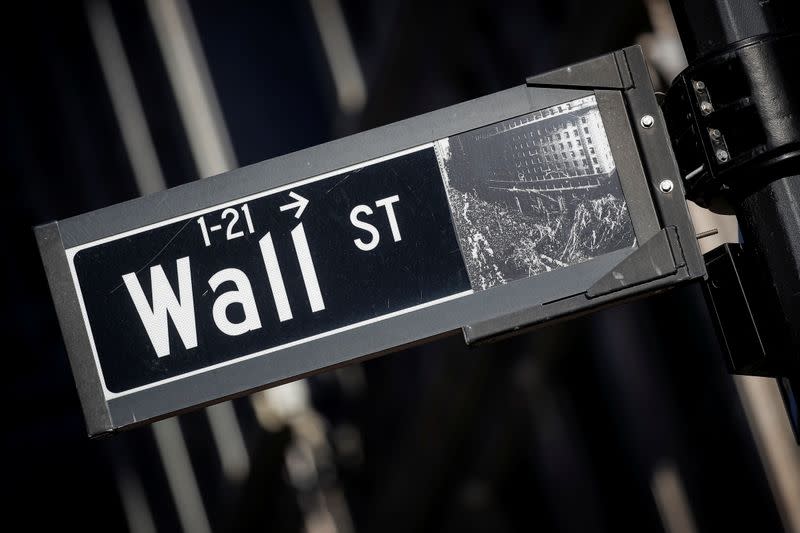In This Article:
By Herbert Lash
NEW YORK (Reuters) - A gauge of global equity markets retreated from early gains on Wednesday as concerns about the first U.S. case of the Omicron variant and sooner-than-expected interest rate hikes next year by the Federal Reserve turned investor sentiment bearish.
The major economic sectors on Wall Street earlier were a sea of green while European stocks posted their best session in almost six months after Tuesday's sharp sell-off triggered by unease over rising inflation and questions regarding the new variant of the coronavirus.
The safe-haven yen and Swiss franc earlier rose even as the more risk-adverse British and Australian currencies rebounded. Similar investor sentiment could be seen in U.S. stocks when earlier gains of more than 1.5% were wiped out.
The United States on Wednesday identified its first known COVID case caused by the Omicron variant, discovered in a fully vaccinated patient who traveled to South Africa, as scientists continue to study the risks the new version could pose.
"We don't have all the facts. There isn't clarity of how easily it spreads, whether the vaccines are effective," said Tim Ghriskey, senior portfolio strategist at Ingalls & Snyder in New York. "That's causing a lot of swings in the market."
MSCI's all-country world index closed down 0.26% after earlier trading 1.8% higher. The broad STOXX Europe 600 index closed up 1.7%, with Germany's DAX index gaining 2.5% and France's CAC40 adding 2.4.%
On Wall Street, the Dow Jones Industrial Average slid 1.34%, the S&P 500 fell 1.18% and the Nasdaq Composite lost 1.83%. Only the S&P's utilities sector <.SPLRCU) closed higher.
Investors also remain skittish about the outlook for rising inflation and a quicker pace of Fed plans to taper its massive bond purchasing program.
With a robust U.S. economy and supply-demand imbalances poised to persist near-term, policymakers need to be ready to respond to the possibility that inflation may not recede next year as expected, Fed Chair Jerome Powell said in a hearing before the U.S. House of Representatives.
The market perceives Powell as more hawkish than in the past and expects three rate hikes in 2022 with another three the following year, said Jack Janasiewicz, lead portfolio strategist at Natixis Investment Managers Solutions in Boston.
"This concept of inflation running way to the upside and the Fed's behind the curve and they're going to have to massively tighten, we don't subscribe to that," Janasiewicz said. "The market's a little ahead of itself in terms of that."


